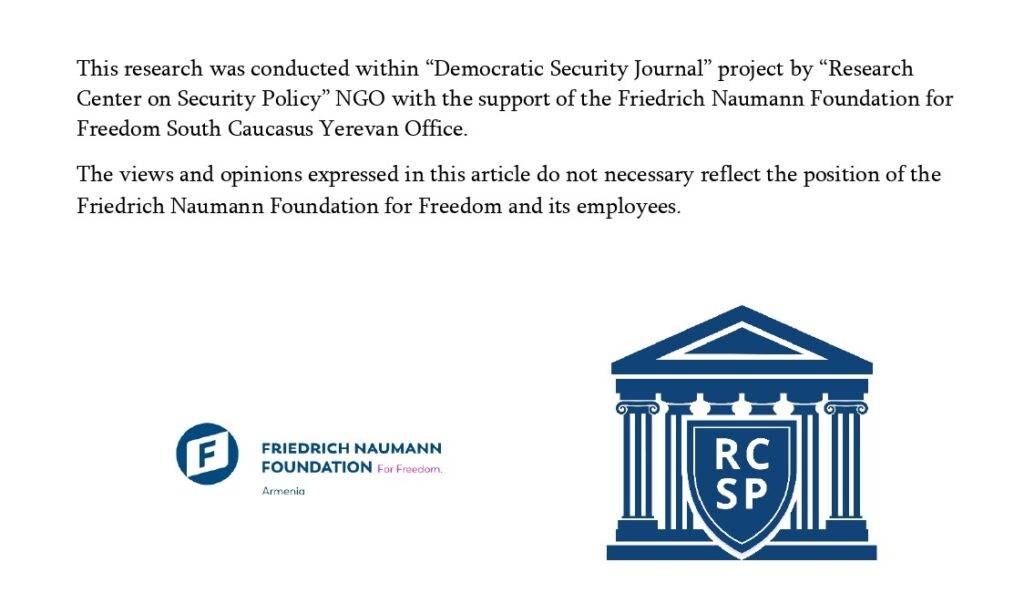Introduction
The election of Donald Trump as the 45th President of the United States on November 5 created uncertainties in many regions. In the political arena, Trump is often characterized as an unpredictable figure. This characterization is even more pronounced now, as the Republican Party has maintained its position in the House of Representatives and gained a majority in the Senate. This means that for at least the next two years, Trump is unlikely to face significant challenges in Congress regarding his initiatives.
The U.S. elections garnered considerable attention in Armenia as well. Given the unprecedented activity in Armenian-American relations in recent years and the U.S.’s involvement in the region—particularly in countering Azerbaijan—Armenia has a vested interest in the policy direction of the next U.S. administration toward the region.
What to Expect
The foreign policy priorities of the Trump administration remain uncertain. However, by analyzing Trump’s previous term, his campaign statements, and the current geopolitical realities, we can identify several factors that may directly or indirectly influence U.S. policy in the region. Let’s explore some of these factors.
- Trump’s approach to foreign policy is often described as “isolationist.” He tends to reduce U.S. involvement in various conflicts and even international organizations. Guided by the “America First” principle, his primary focus is on U.S. interests. Considering this, it is plausible that after January 20, 2025, we may witness a reduction in U.S. involvement in different regions, including the South Caucasus. This would pose challenges for bilateral cooperation, ongoing programs, and established agreements.
- The resolution of the Ukraine conflict, which Trump has repeatedly emphasized as necessary, may also influence U.S. involvement and the balance of power in the South Caucasus. Regardless of how the war concludes, it is likely to lead to increased Russian activity and attempts to restore its influence in the region. Consequently, this could result in diminished U.S. and EU involvement. Given Armenia’s dependence on Russia in various sectors, this could render the country particularly vulnerable.
- Iran remains a critical factor in U.S. policy in the region. During his first term, Trump adopted a “maximum pressure” policy against Tehran, withdrawing unilaterally from the nuclear deal and expanding sanctions. His rhetoric toward Iran has continued to be harsh during his bid for re-election. Against the backdrop of recent Israel-Iran tensions, Trump has even suggested that Israeli Prime Minister Benjamin Netanyahu should consider striking Iranian nuclear facilities.
Returning to the White House Trump will intensify pressure on Iran, primarily through stricter sanctions. At the same time, Trump’s unwavering support for Israel could heighten the risk of a direct and large-scale Israel-Iran confrontation. In such a scenario, Azerbaijan’s role may grow in Washington’s strategic considerations due to the deep-seated issues in Baku-Tehran relations and Azerbaijan’s strategic partnership with Israel.
Heightened U.S. pressure on Iran would significantly limit opportunities for Armenian-Iranian cooperation. Furthermore, it could undermine Iran’s role in ensuring stability in the South Caucasus and restraining Azerbaijan, thereby presenting additional challenges for Armenia.
Proactiveness as Opportunity
Given the current realities and potential challenges, it is crucial for Armenia to adopt a proactive approach in establishing connections with the new U.S. administration and advancing its national agenda. To this end, several considerations should be kept in mind:
- The formation of the new U.S. administration and the clarification of its foreign policy priorities will require at least several months. During this period, it is essential for the Armenian side to act proactively and use the time effectively to establish both formal and informal communication channels with representatives of the Trump administration. In this regard, the November 16 phone conversation between the Armenian Prime Minister and the U.S. President-elect was a significant step. Additionally, appointments of officials in key positions within Trump’s administration and Congress, especially those with previously demonstrated pro-Armenian stances, could have a substantial impact on advancing Armenia’s interests. Notably, there are candidates with ties to the Armenian community among the circulated names for potential positions.
- Under the Biden administration, Armenia-U.S. relations reached an unprecedented level in terms of both agenda and bilateral interactions. In June 2024, an agreement was reached to transition from the current strategic dialogue to a full-fledged strategic partnership. It is crucial to finalize this transition under the current administration by January 20; otherwise, the process may face delays or, in the worst case, suspension. Securing a strategic partnership with the U.S. would bolster Armenia’s position on America’s geopolitical map.
- Trump frequently emphasized ending global conflicts during his election campaign. In his first post-election victory speech, he reiterated his intent to end wars rather than initiate them. Given this approach, efforts should be made to make the Armenia-Azerbaijan settlement process a focus of Trump’s interest. Facilitating a peace treaty between Armenia and Azerbaijan, even with Trump’s symbolic involvement, could yield significant political dividends for him by reinforcing his image as a “peacemaker.” U.S. engagement in the peace process under the new administration could encourage Azerbaijan to adopt a more constructive stance and accelerate the finalization of the treaty text.
- Under the Biden administration, democratic values were central to international cooperation. However, under Trump, economic interests are likely to take precedence. In this context, Turkey and Azerbaijan possess significant advantages compared to Armenia. For the new U.S. administration, enhancing Armenia’s economic appeal is crucial, and the “Crossroads of Peace” project holds particular importance. This initiative has not only regional but also global logistical significance. It could serve as an alternative route linking Central Asia to external markets, offering these countries an opportunity to reduce their logistical dependence on Russia and China—a goal aligned with U.S. geoeconomic interests.
- When developing communication and cooperation with the new U.S. administration, value-based foundations are also essential. While Armenian-American relations under the Democratic administration were rooted in the principles of democracy, a Republican administration is likely to prioritize economic interests and Christianity. Notably, 8 out of 10 Republican voters identify as Christians, a fact that undeniably influences the party’s political priorities. In this context, Trump’s pre-election statement about the ethnic cleansing in Artsakh is particularly noteworthy. He pledged to “protect persecuted Christians, stop violence and ethnic cleansing, and restore peace between Armenia and Azerbaijan.” Additionally, his call with Catholicos Aram I of the Holy See of Cilicia highlights potential directions for engaging the next U.S. administration. While these steps were part of a campaign strategy, they still provide certain benchmarks for framing dialogue and cooperation with the forthcoming administration.
Conclusion
Trump’s presidency could pose both challenges and opportunities for Armenia. Accurate assessment and appropriate actions could help strengthen Armenia’s resilience and expand its cooperation with the United States.
Photo from Axios website
Author: RCSP associate expert Narek Minasyan


